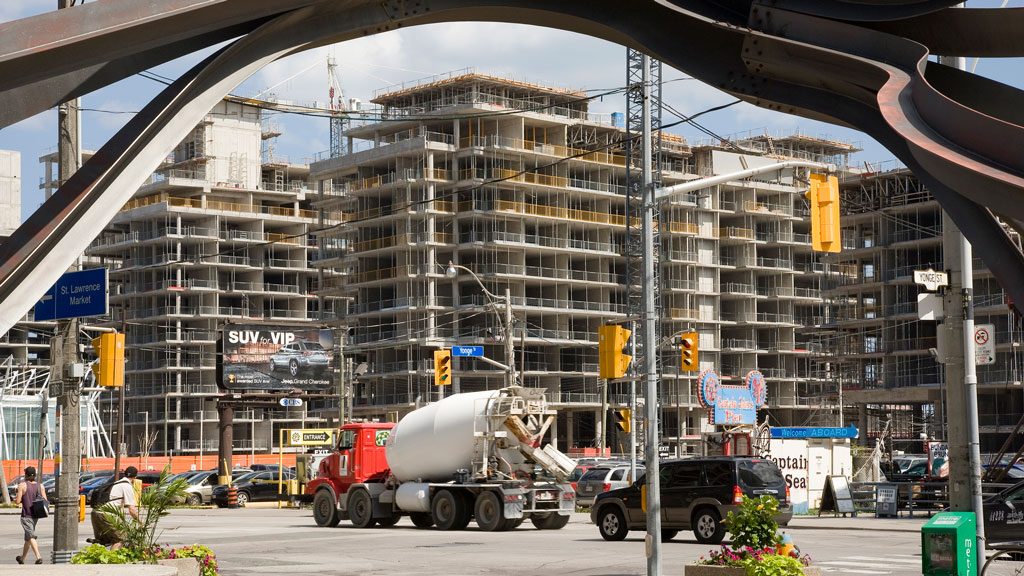The City of Toronto has decided to give with one hand and then wrongly take with the other.
Let me explain.
Council recently gave the greenlight to zoning bylaw changes that will remove requirements for new developments to provide a minimum number of parking spaces which will lower building costs.
However, Toronto Water has unilaterally decided to require developers to manage foundation drainage onsite rather than discharge to the system. This will be costly and undoubtedly raise unit prices.
In a time when housing costs are going through the roof, the city should be doing whatever it can to encourage developers to build more housing.
With Canada expected to welcome more than 400,000 new immigrants this year and next, the need for housing is great. Most of these immigrants will stay in Toronto.
Many people have given up on the thought of ever owning a home. Without affordable housing, our economy will be threatened.
The decision to remove parking minimums for new developments was appropriate and RESCON (Residential Construction Council of Ontario) congratulates council for doing the right thing. The requirements date back to 2013 and needed to be updated.
Council accepted the recommendation of planning staff who had proposed less restrictive parking space requirements for developers. Instead, limits will be placed on the maximum number of parking spaces.
Council listened to the facts. The new parking standard reflects the changing habits of urban dwellers who are increasingly turning to driving alternatives like ride-sharing and public transit.
The change helps better manage car dependency and strikes a balance between too much and too little parking. Developers will no longer be required to build parking spaces that aren’t necessary and that homebuyers don’t want.
The change is also in alignment with the city’s climate action strategy to reduce greenhouse gas emissions and encourages residents to use alternatives to vehicles such as walking, cycling and taking transit.
Data we collected shows that in new condo projects an average of 33 per cent of parking stalls were left unsold. One builder had 90 per cent of parking still available for sale as a building neared construction.
The market price for parking stalls has risen as high as $165,000 in certain new residential building projects — up significantly from $80,000 to $100,000 just three years ago. It makes no sense to force developers to dig deep underground to provide parking spaces that are not needed.
Building underground parking spaces in Toronto is expensive and drives up the price of new housing developments. These costs are eventually passed on to buyers.
The deeper in the ground you go, the more expensive it is to build parking spaces. Mandating developers to build unnecessary parking spaces also prolongs construction, burdens city sewers and infrastructure with groundwater and results in a lot of extra work to excavate and dispose of soil.
Developers will still build parking but won’t be mandated to put in place parking that is not needed.
Toronto Water, however, is going in the opposite direction.
As of Jan. 1, 2022, long-term discharge of foundation drains to the city’s sanitary sewer system will no longer be permitted in order to preserve sewer capacity for future development growth.
Oddly, this policy is proceeding without the need for council approval. It is problematic and puts developers in a bind because it is being rushed into implementation within only months of informing the building industry.
Presently, foundation drainage is collected from the aquifer and discharged to the city’s storm or combined sewer system.
However, because the new policy unfairly stipulates that developers must manage foundation drainage onsite, they will have to install membranes around underground levels of a building to collect the drainage, which will only add to costs.
In essence, then, any savings from reduced parking requirements will be negated by the new requirement to make underground parking garages watertight.
The city has signalled it wants to provide more affordable housing. Yet, as the parking requirements are being changed another policy is coming into effect that raises building costs even more.
Other policies, such as inclusionary zoning and Toronto Green Standard requirements, will also put pressure on developers and add significantly to the cost of providing housing.
It seems the city is heading in the right and wrong directions at the same time.
Richard Lyall is president of RESCON. Send Industry Perspectives comments and columns ideas to editor@dailycommercialnews.com.











Recent Comments
comments for this post are closed